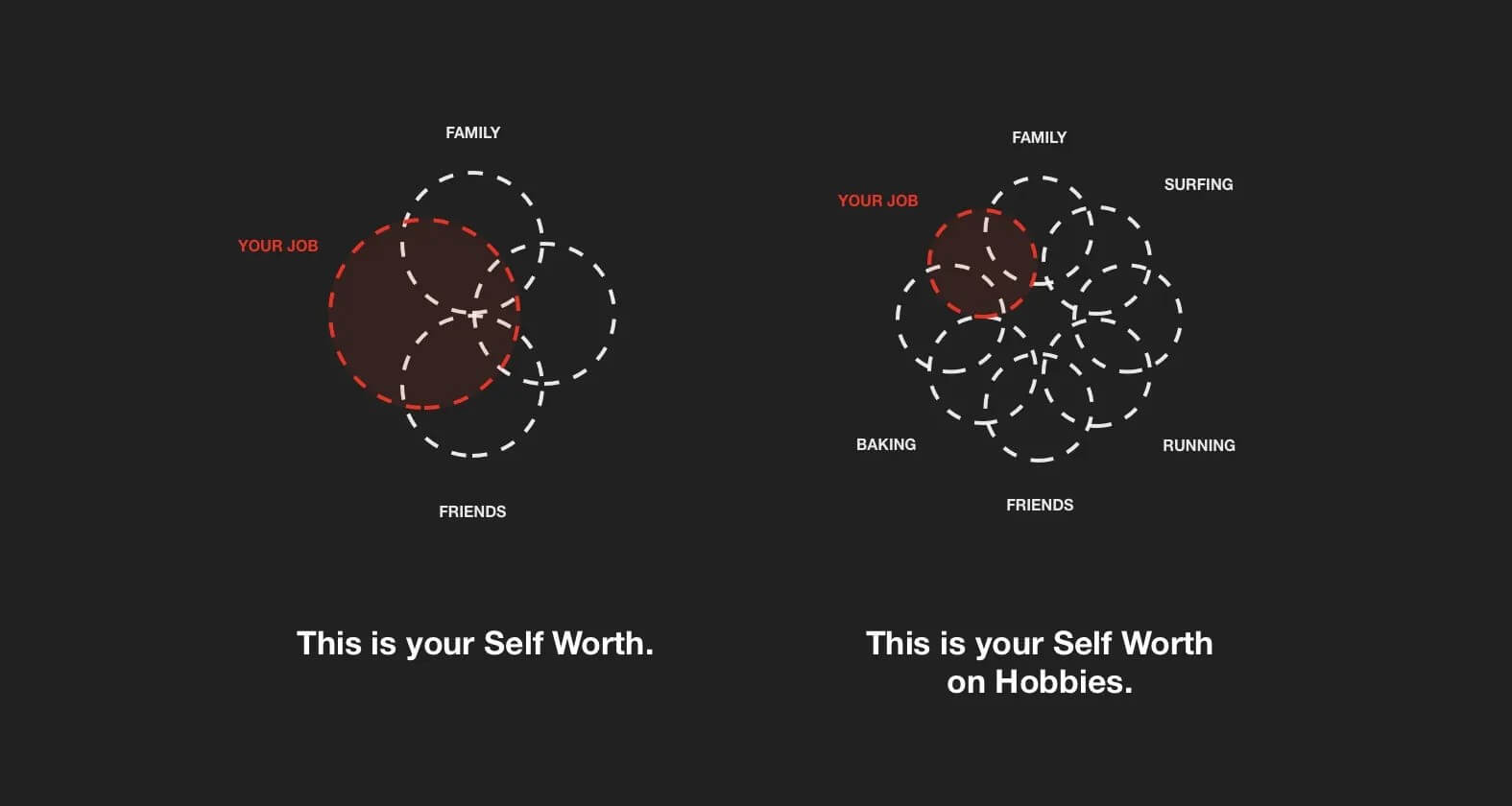microservices & you
a system design for resilient identity
Here’s my theory. Hobbies are microservices for people. Without a hobby, you could become too dependent on your job. Without a hobby, your self worth might become too attached with your current role at your company. If your job suddenly changes, that’s going to eat up a lot of your self-worth.
That’s what happened to me. I was gainfully employed as a software engineer. Then I left that job to work for myself for a year. During that time, the lack of a bona fide role at a proper company made me feel a bit lost. My theory is I could have saved some confusion and frustration by having a healthy hobby.
I think this also explains the feeling of displacement when individual contributors find their roles suddenly changed to management.
The theory revolves around how tightly your job is tied to your identity. People that frequently identify as their job title. How much does this sound like you? How often do you find yourself saying something like “I am an engineer doing engineer-y things on an engineering team.” How often do you answer “I work at X” when people ask “What do you do?”.
If this sounds like you, you might be feeling down on yourself if your job hasn’t been popping recently. If you are still nodding along to this, I’ve got a great suggestion for you: develop a hobby. Hobbies are a way to decouple your self worth from your job. Hobbies allow you to relate to other areas in your life without depending on your job.

This theory doesn’t just apply to hobbies. It applies to side projects, families, cultural identities, and everything that makes you… you. It is your identity system.
If we had to get real nerdy and design your identity system, would it be a singular monolithic structure or a fractured microservice ecosystem? Keep in mind there are tradeoffs. A single majestic monolithic lifestyle may be more efficient and easier to maintain while a decoupled microservice lifestyle may be more resilient and more adaptable. A important note is that a microservice-type design is not a silver bullet.
A microservice lifestyle
- Modular — The parts of your life are separated by functionality into interchangeable, independent modules.
- Scalable — Supports progress and growth in your life in multiple areas independently from each other.
- Distributed — No single aspect of your life dominates your entire well-being, making it less prone to disruptions.
There are tradeoffs between monolithic vs microservice designs. There might not be a correct design for everyone’s lifestyle. However, a microservice architecture is commonly used on rapidly changing codebases because of its benefits. This system design might also be helpful during disruptive current events. During a global pandemic while everything is changing, it might be helpful to have some robustness in your personal life.
Anyways pick up new hobbies, start bread-making, build some side projects, and do more things for your self worth outside of your typical work. It might help your mental health.